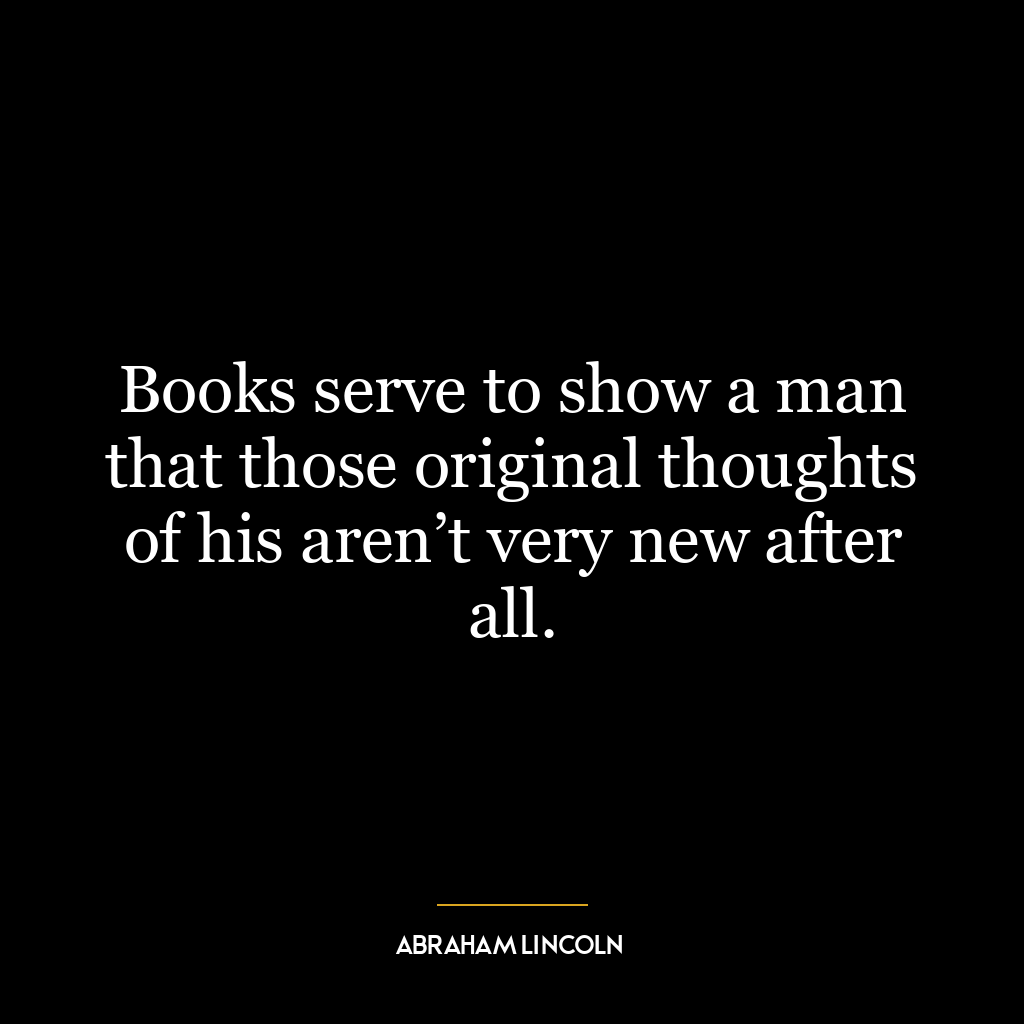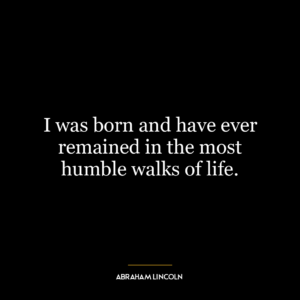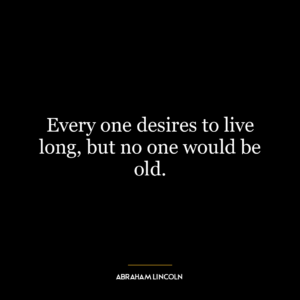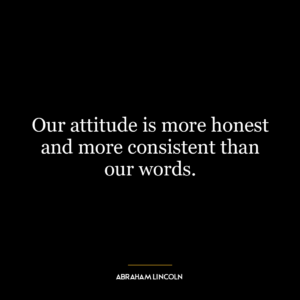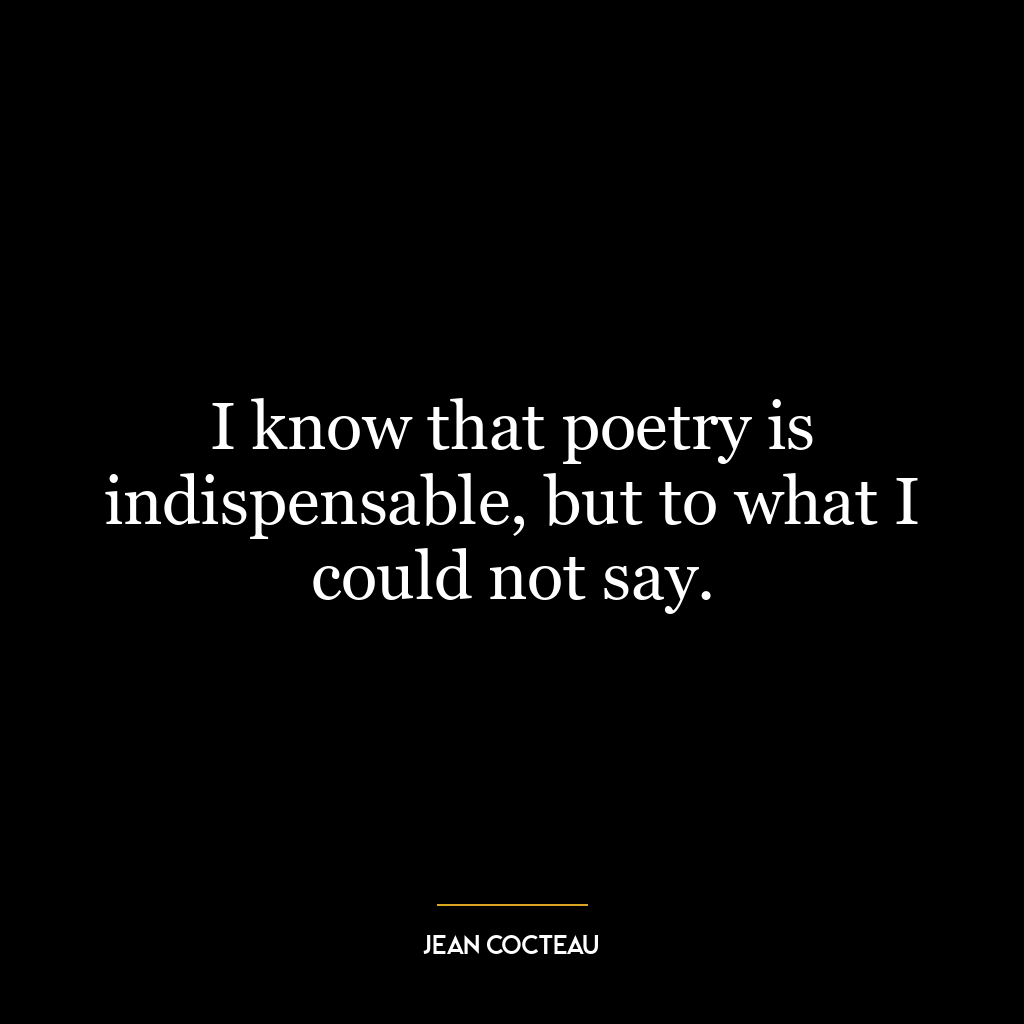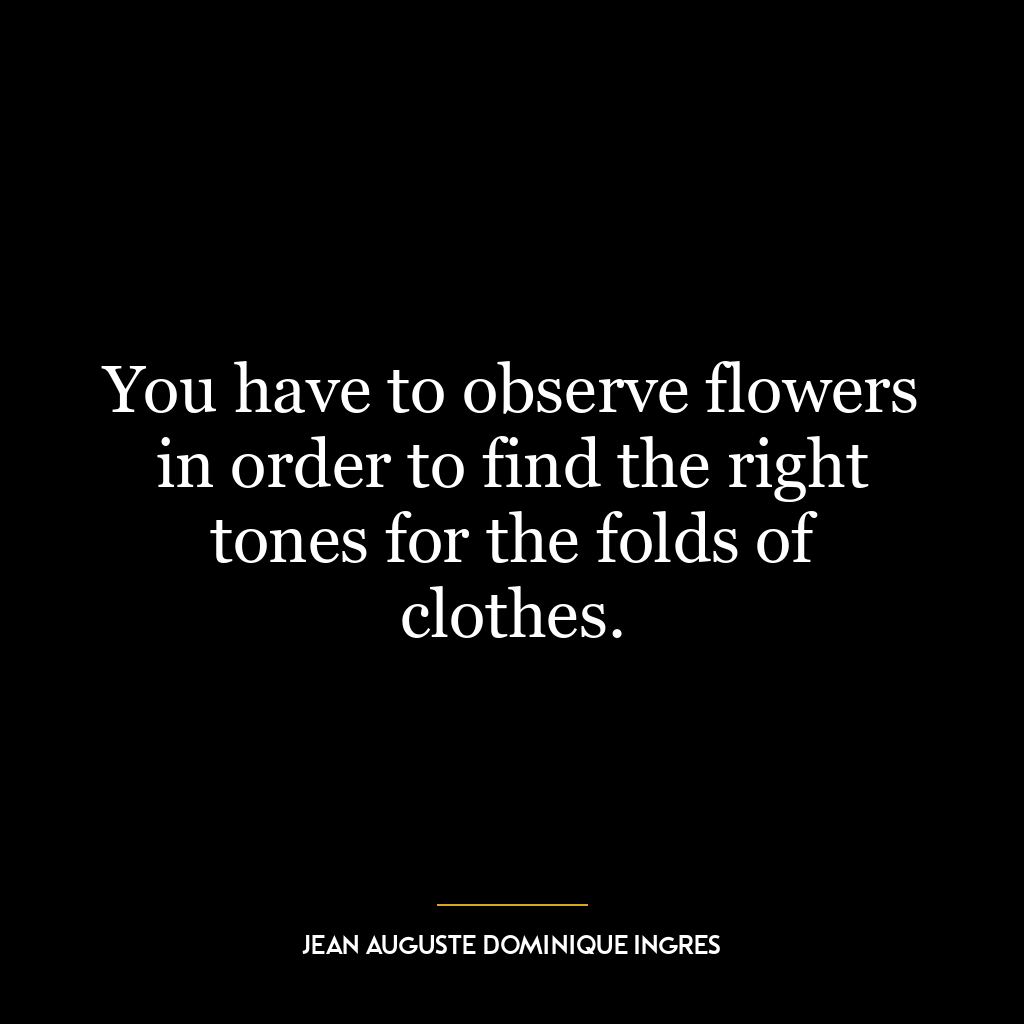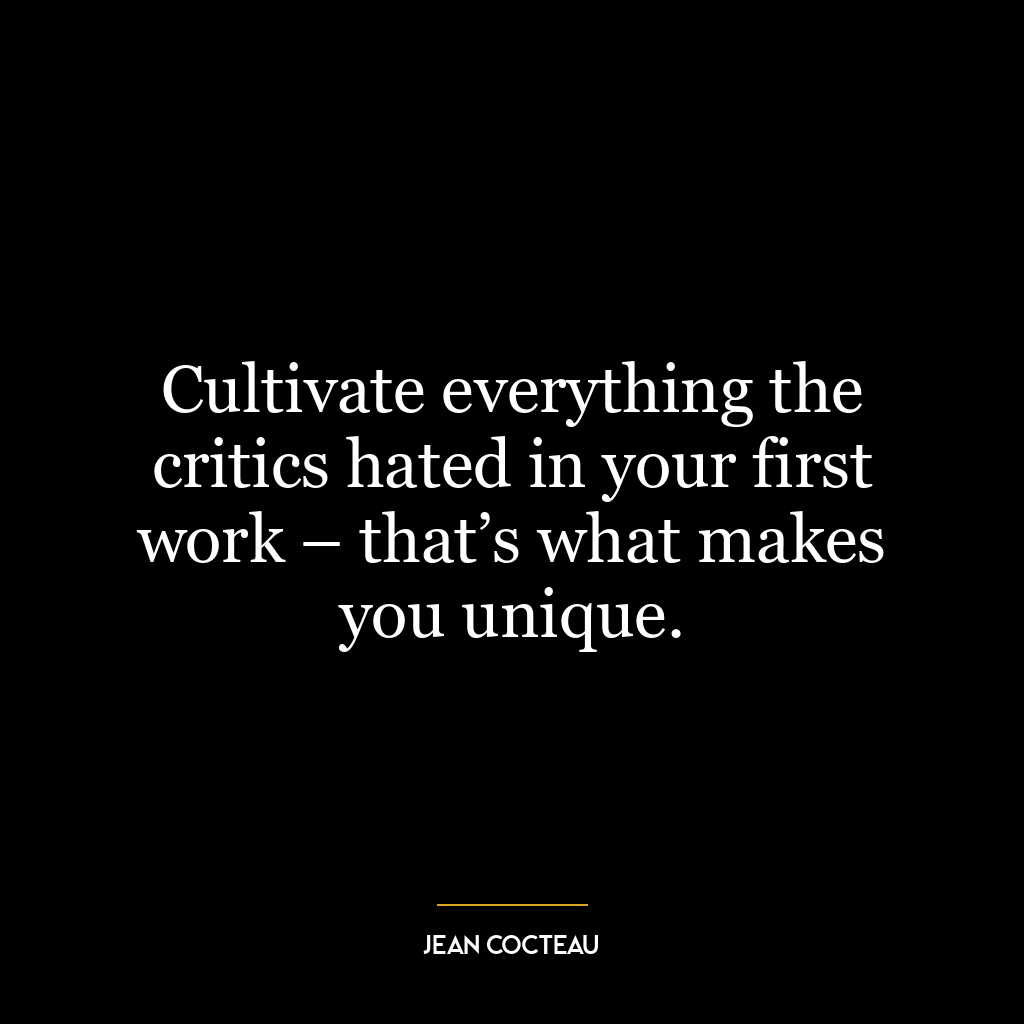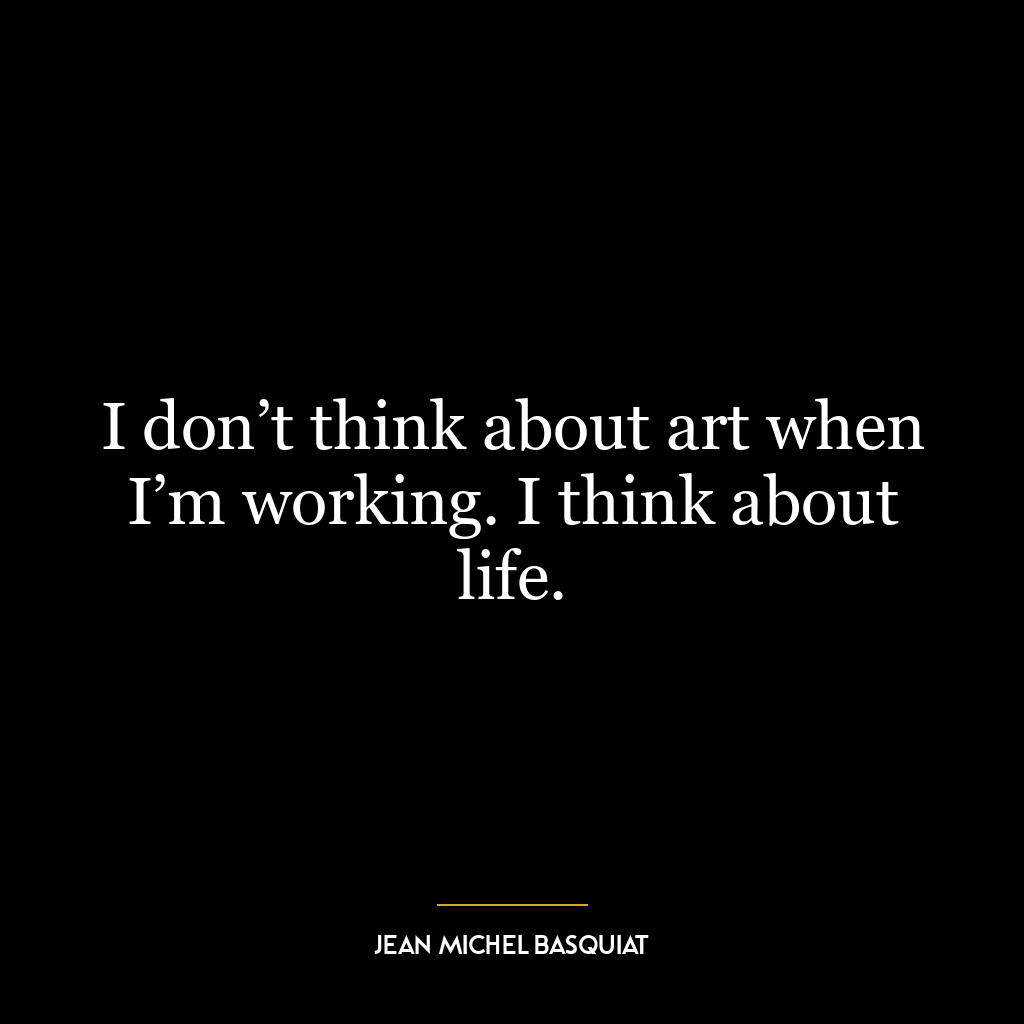Books serve to show a man that those original thoughts of his aren’t very new after all.
This quote emphasizes the humbling and enlightening power of books. It suggests that our thoughts, ideas, and insights, no matter how original we think they may be, have often been thought of, explored, and expressed by someone before us. Books, being a repository of human knowledge and experience, serve as a mirror that reflects this reality back to us. They remind us that we are part of a continuum of thought and discovery, rather than isolated thinkers.
The statement is not intended to belittle our ideas or discourage us from thinking independently. Instead, it encourages us to seek wisdom from the past, to learn from the insights of others, and to see our thoughts as part of a larger dialogue that spans across generations. It is a call for humility, but also a call for curiosity and continuous learning.
In today’s world, this idea is more relevant than ever. We live in an age of information overload, where new ideas and innovations constantly bombard us. It’s easy to believe that we are at the pinnacle of human thought and that our ideas are unprecedented. However, by engaging with books – the thoughts and experiences of those who came before us - we can gain a broader perspective. We can see that many of the challenges we face today, whether technological, social, or philosophical, have been grappled with in some form in the past.
In terms of personal development, this quote reminds us to be lifelong learners. It urges us to read widely and deeply, to engage with different perspectives, and to be open to the wisdom of others. It also encourages us to see our ideas as part of a larger conversation, to be humble in our assertions, and to be open to the possibility that our ‘original’ thoughts may not be as new as we think. This can lead to a greater sense of connection with others, a more nuanced understanding of the world, and ultimately, a richer and more informed perspective on life.

